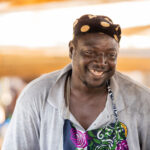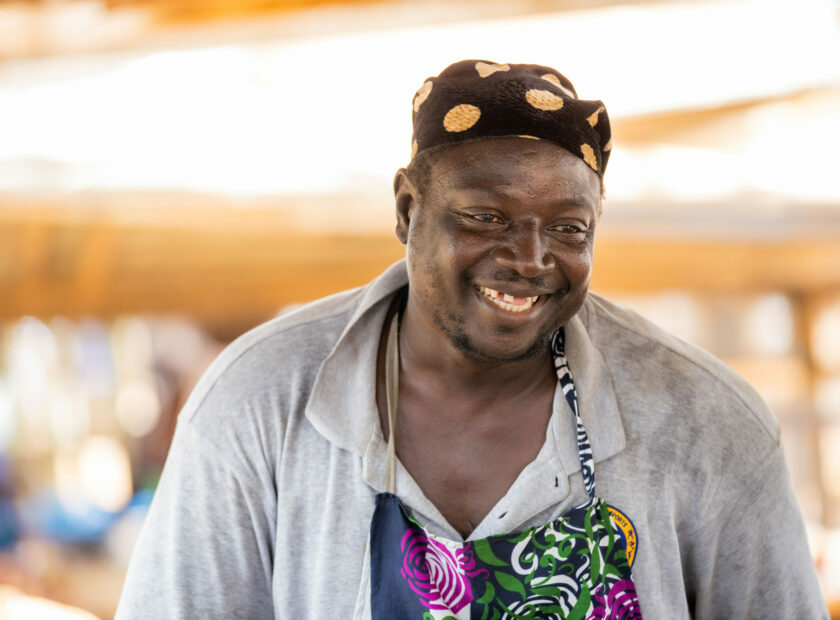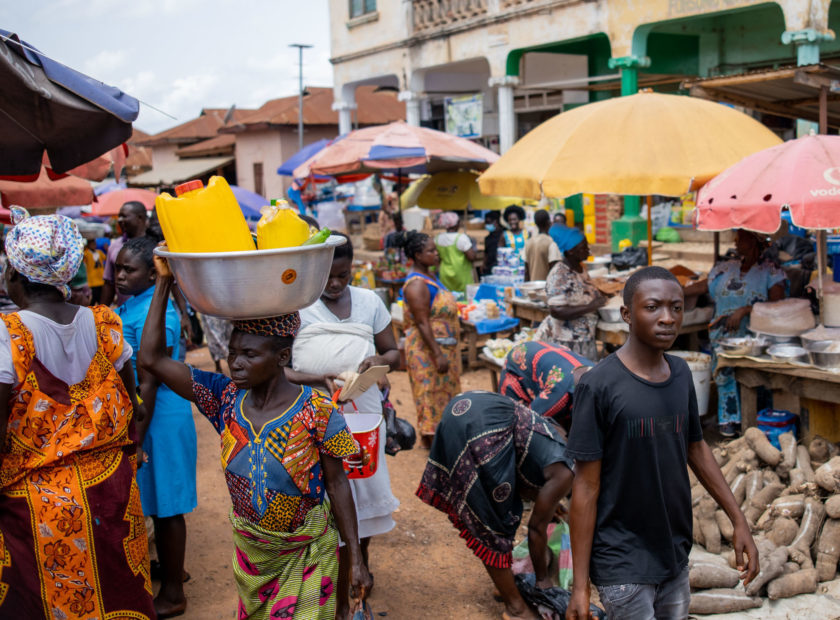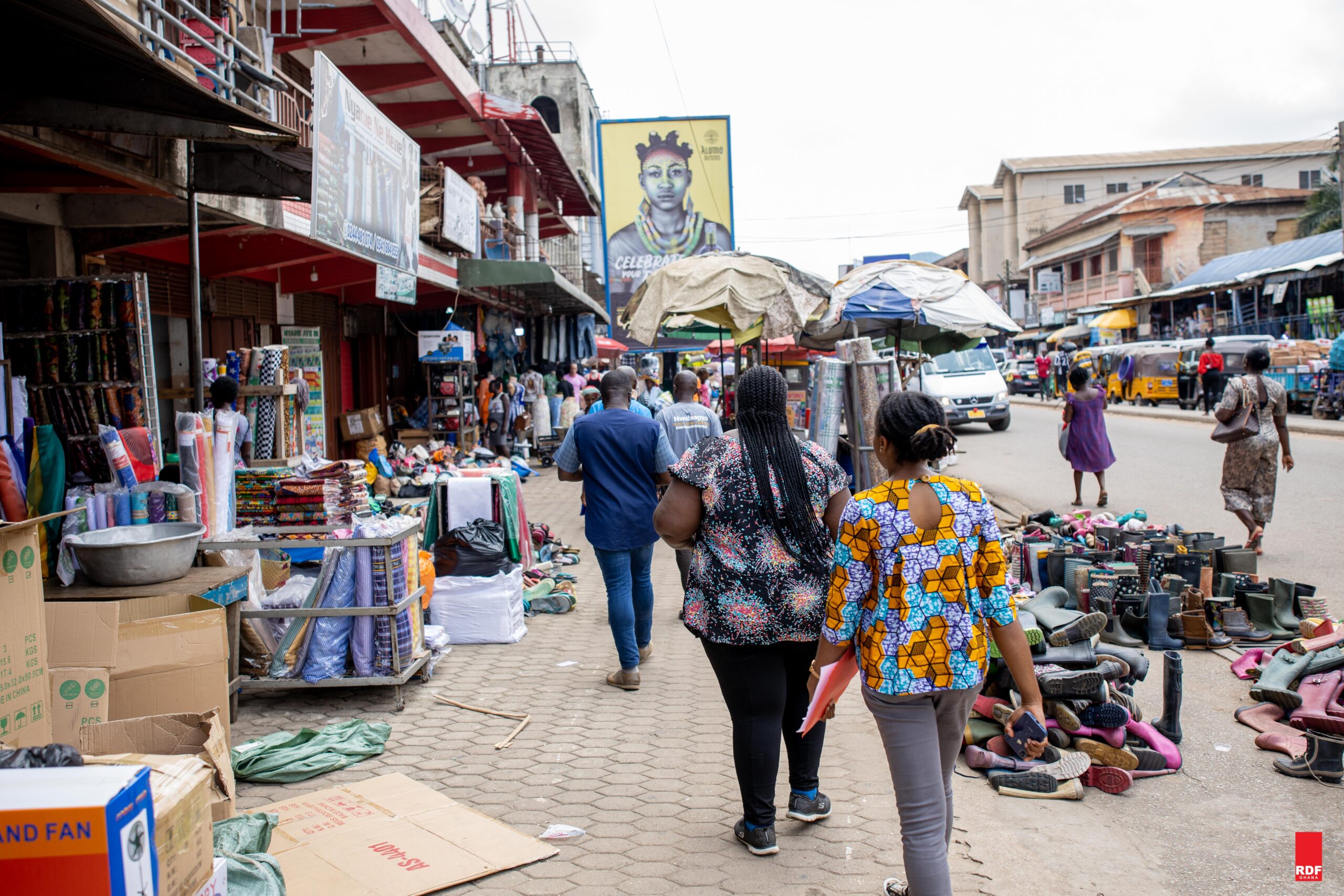
The Marketplace Nurtures Soft Skills: A Focus On Adaptability and Resilience at the Kumasi Central Market
RDF Ghana LBG is pleased to take our readers on yet another market visit. Our destination this week is the Kumasi Central Market.
The Kumasi Central Market is known as one of the biggest markets in West Africa. It is an open-air market in the city of Kumasi, the capital of the Ashanti Region in Ghana. The market is a major trading centre which is visited by up to 800,000 people daily from Ghana and the nearby countries like Benin and Togo[1].
The huge Central Market in Kumasi is a cherished workplace for more than 20,000 traders[2]. In this market, you will find two beneficiaries of RDF Ghana, Beatrice Acheampong and Patience Arthur plying their trade. Both women are clients of Nwabiagya Rural Bank (NRB), a partner financial institution of RDF that accessed a line of credit facility to lend to businesses in the agricultural value chains.
The expert manner in which her wares are displayed shows that Beatrice understands the terrain well. Beatrice is a two-time beneficiary of RDF Ghana’s lines of credit. She currently trades in vegetables and spices. To survive in the competitive and dynamic market, Beatrice demonstrates adaptability by being a ‘seasonal’ trader; she cashes-in on the most sought after food item for each season. During the Senior High School reopening periods, for instance, she capitalizes on the demand for black pepper sauce (shitor) to sell shrimps, the main ingredient for this sauce. She is a resilient and quick-witted entrepreneur who makes the most of every turning tide.
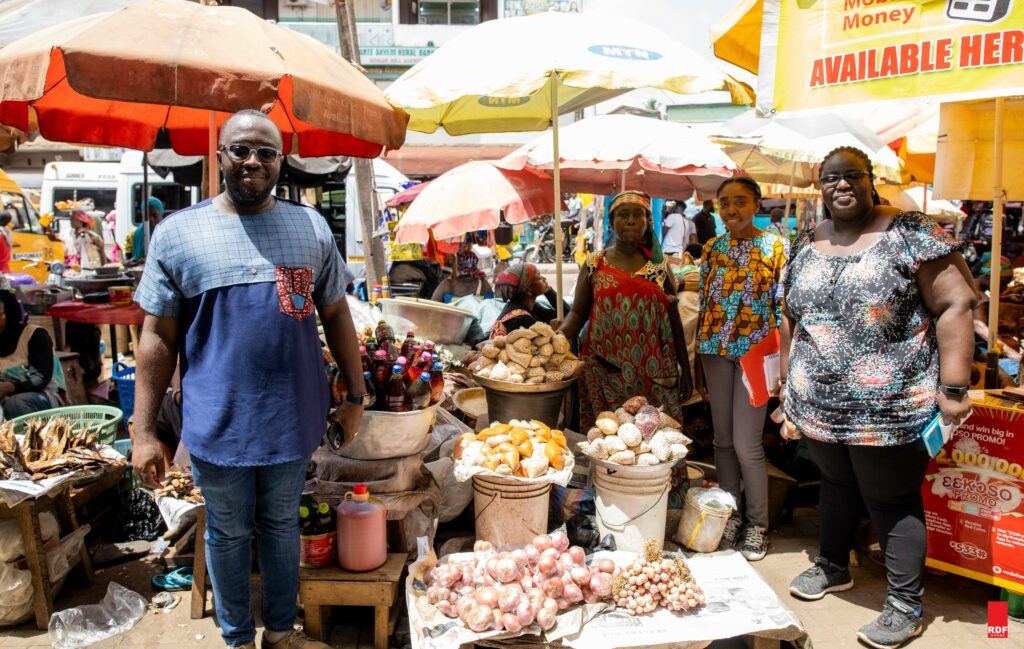
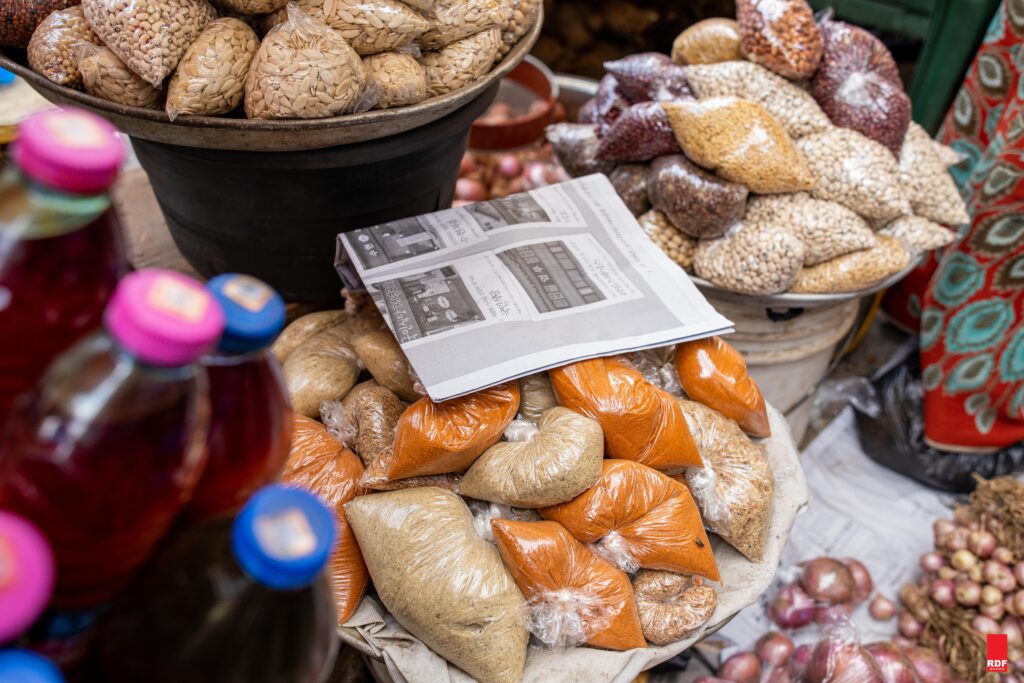
Patience Arthur is a seasoned trader selling maize, rice and beef in the market. She has benefited from four cycles of RDF’s line of credit facility through NRB. Like Beatrice, Patience adapts to capitalize on changing market conditions. In Patience’s case, she deals majorly in the sale of rice so she is almost always in business since rice is a daily meal throughout Ghana, especially in the urban areas. In spite of this, she has her own adjustments to make when it comes to pricing and the availability of rice.
According to the Ministry of Trade and Industry, in Ghana, the Micro, Small and Medium Enterprises (MSMEs) sector employs more than 80% of the workforce and accounts for 70% of the national output. Market women are playing their part in this share. In a more gender-specific report on female entrepreneurs, the 2021 Mastercard Index of Women Entrepreneurs (MIWE), has for the third time reported that Ghana is one of the top three economies in the world with the most female entrepreneurs, coming third after Botswana and Uganda respectively[4]. The research further indicated that women entrepreneurs in Africa are resilient and adaptable, a trait exhibited by Beatrice and Patience.
In a study on the role of market women in the informal urban economy and the factors that threaten the effective performance of their roles, the authors interviewed 360 foodstuff sellers from the Kumasi Central Market and the Racecourse Market all in Kumasi. The research found that:
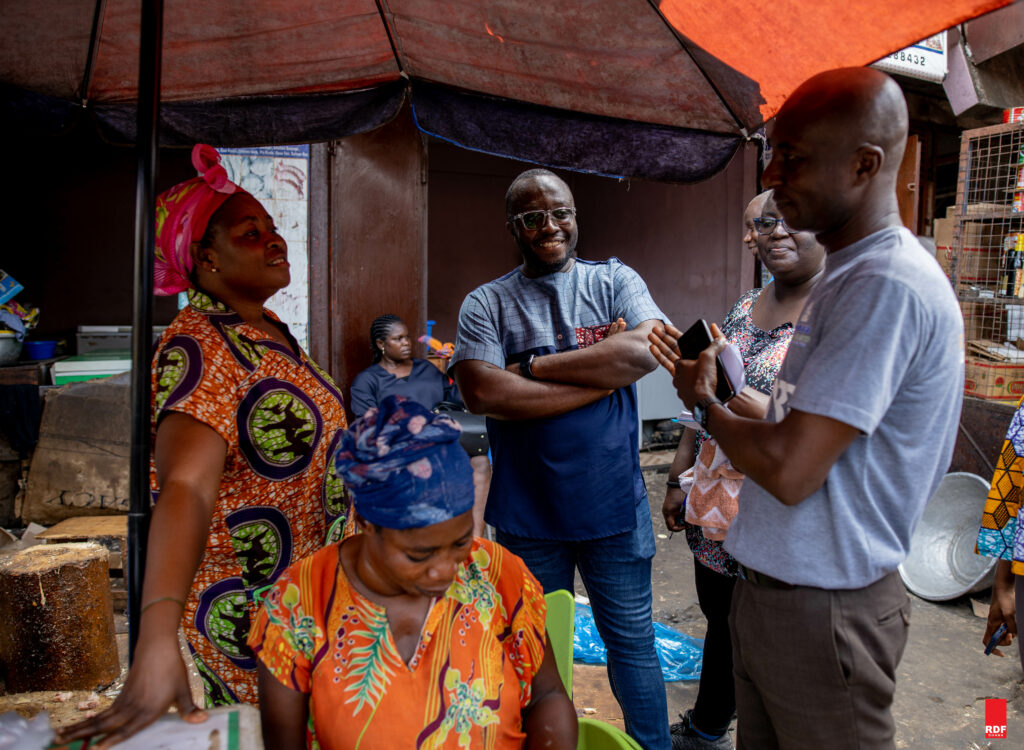
“Market women had made significant contributions towards Ghana’s fiscal decentralisation through the payment of levies and rents. They have also created jobs, provided incomes for households, ensured food security and sufficiency, and provided a platform for generational development of entrepreneurial skills and competence.
Women like Beatrice and Patience are required to adjust to the ever-changing market conditions to remain in business. Many of these women may not be able to properly document or express how they keep afloat, but they demonstrate tenacity and resilience that enables them to observe the changing circumstances and take the needed action. Even though Baah-Ennumh and Adom-Asamoah (2012) in their research found that market women play the aforementioned key roles, their roles in the informal economy were constrained by the inadequate basic infrastructure in the markets, limited access to credit facilities and transportation difficulties . The marketplace is a case of survival of the fittest for many of these women. Beatrice and Patience are required to adjust to consumer preferences/needs, increasing prices and the scarcity of goods. They do not have the opportunity to influence the factors that determine their survival in business. Yet, they cannot quit because their livelihoods, their dependants and the sustainability of the market depend on women like them – they have a sense of responsibility to their customers and to a larger extent, their families and they cannot fail them.
RDF Ghana is addressing the constraints related to access to credit facilities to ensure that traders like Beatrice and Patience thrive. So far, RDF Ghana has invested GHS 6.82 Million in MSMEs involved in trading of food stuffs, representing 32.5% of disbursements made since 2018. Gracia Clarke, in her field study of the Kumasi Central Market, describes the market as community, employer and home. If this description is anything to go by, then life in the marketplace should be worth the time for women who have been found to enjoy making a living there. According to her,
Some said they had more leisure and stability in the market than at home, juggling the constant demands of children, husband, and landlord
She added that markets thrive because they mediate significant kinds of differences in access to resources.
The markets bridge these differences (in ecology, wealth, class, and ethnicity) not by erasing them but by taking advantage of them, often in ways that perpetuate or intensify them.
Year after year, RDF is building a community of stakeholders who are working in the interest of the market woman and the Ghanaian economy by availing lines of credits to its partner financial institutions who break the bulk and on lend to women doing the most in Agric like Beatrice and Patience. Welcome aboard!


